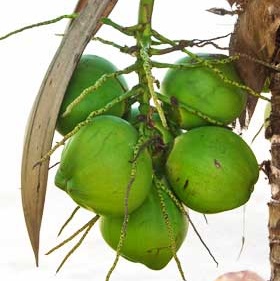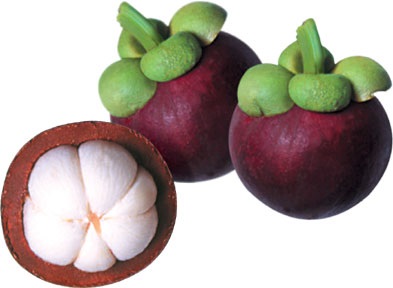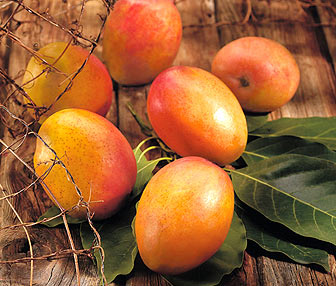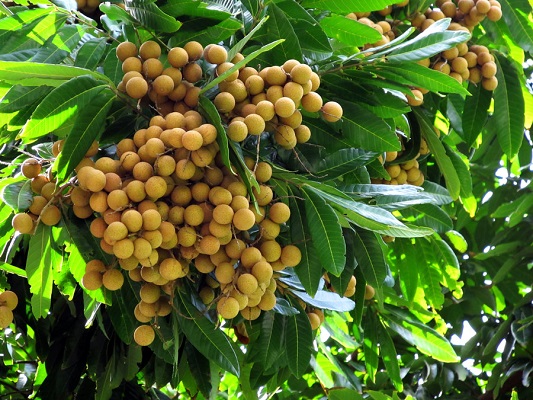Tropical fruits are usually available all winter long, and are like an early preview of summer’s warmth. But beyond these warm feelings, many tropical fruits have far more powerful abilities. Aside from tasting good, they also have healthy benefits that in some instances could be lifesaving.
Eating more of any fruit is good for your health. But, tropical fruits have been known to reduce your risk of cancer and heart disease. A diet rich in tropical fruits ensures that you will have improved digestion. Best of all, these fruits can neutralize free radicals, protecting you from asthma, joint pain, and the above-mentioned heart and cancer risks.
Five of the most outstanding tropical fruits that can change your life are
- Coconut,
- Mangosteen,
- Avocado,
- Mango, and
- Longan berries.
- Coconut
This fruit has plenty of health benefits as well. Coconut water has a ton of health benefits. It’s a sterile source of clean water, useful for survival hydration. On top of this, coconut water has the same level of electrolytic balance human blood. In the Pacific Theatre during World War II, coconut water was frequently used in the field as an emergency plasma transfusion for wounded combatants.
Coconut water makes a better sports drink than commercial products, as it is lower in salts and sugars and higher in potassium. And, of course, the flesh and oil of the coconut is also edible and good for you!
few years ago, coconut oil’s bad reputation caused a panic at the concession stands, when a study claimed that a large movie-theater popcorn, cooked in the oil, delivered as much saturated fat as six Big Macs.
But coconut oil has recently become the darling of the natural-foods world.
According to the New York Times:
“while it’s true that most of the fats in virgin coconut oil are saturated, opinions are changing on whether saturated fats are the arterial villains they were made out to be … The main saturated fat in coconut oil is lauric acid, a medium chain fatty acid. Lauric acid increases levels of good HDL, or high-density lipoprotein”.
2. Mangosteen
Mangosteen is a fruit found in tropical countries throughout Asia — Thailand, India, Malaysia, Vietnam and the Philippines. One group of scientists has proposed that alpha-mangostin, an antioxidant found only in mangosteen, can cause cell death in leukemia cells, effectively treating the disease. While more research needs to be done, mangosteen is also said to have powerful anti-inflammatory, antimicrobial, antifungal, and antiseptic properties.
According to one study
“The mangosteen rind, leaves and bark have been used as folk medicine for thousands of years. The thick mangosteen rind has been and is used for treating catarrh, cystitis, diarrhea, dysentery, eczema, fever, intestinal ailments, pruritis and other skin ailments. The mangosteen leaves are also used by some natives in teas and for diarrhea, dysentery, fever, and thrush. It is also known that concentrates of mangosteen bark can be used for genito-urinary afflictions and stomatosis.”
3. Avocado
You might think of it as a vegetable, but this is actually a fruit. And not just any fruit, but a fruit that has been shown to lower cholesterol. They are also rich in folic acid, which can prevent some kinds of common birth defects. Even more interesting is that avocados are the ultimate life hack fruit: when you eat an avocado with other vegetables, you absorb more nutrients from the meal than you would have from eating the vegetables alone. Top your salad with a few slices of avocado, and you’ll be increasing your intake of vitamins and minerals from the meal.
https://www.kannadigaworld.com/news/health-business/2549.html
4. Mango
A single mango will contain half of your recommended daily allowance of both Vitamin A and Vitamin C, as well as some B-Vitamins, omega-3 fatty acids, polyphenols, beta-carotene.
king of fruits Mango originated in the foothills of the Himalayas of India and Burma, and about 40 to 60% of these trees still grow in India and Southeast Asia. Also known as Mangifera Indica, this exotic fruit belongs to the family of Anacardiaceae. Though native to Southern and Southeast Asia, the fruit is now also grown in Central and South America, Africa and the Arabian Peninsula also. Today there are over 1,000 different varieties of mangos throughout the world.
One thing to watch out for with mangos, however, is they pack a caloric wallop. For every 100 grams of mango, you’re going to get 75 calories.
5. Longan berry
Longan berries, native to China, have long been said by Asian herbalists to have relaxing properties, making them the perfect snack to enjoy to lower your stress levels. It is also said to have anti-cancer, antioxidant, and liver-protective properties. The longan contains high levels of iron, potassium, and large amounts of vitamins A and C. Finding them in a form other than fresh at your local market may be tough, but dried and canned longan are also available.
You are what you eat. If you want to be smart, eat smart, and reach for these tropical fruits the next time you are craving a snack.





